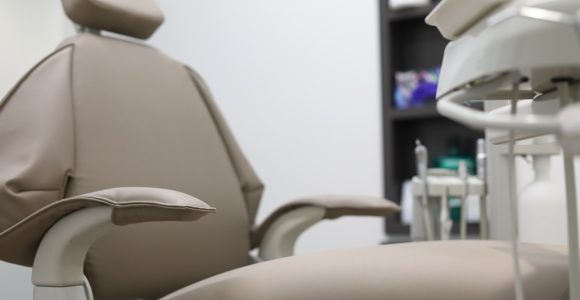What can be done to replace missing teeth?


There are a few possible options for replacing a missing tooth, or several missing teeth. Dentures or bridges are probably the options that most people have heard of. These can be used in many cases including both where several teeth are missing and also where only one tooth is missing. Another, possibly lesser known option, is the use of dental implants Leicester. These are intended to be a longer lasting form of tooth replacement.
Of course, it’s possible that not all of these options are suitable for you. Because your needs, your teeth and your history are all unique to you, the possible methods of replacing teeth are also specific to you. Due to this, an appropriate form of action can only be taken with the guidance of a qualified dentist. This dentist will need to examine both your mouth and teeth and discuss any relevant medical history with you in order to be able to give you the correct advice.
After this conversation and examination has taken place, it is possible that you may be a suitable candidate for the use of dental implants.
I haven’t heard of dental implants before. What are they?.
Dental implants, as stated above, are a longer lasting replacement option for missing teeth. They are made up of three different parts, each with individual roles. The titanium screw is the section of the implant which is inserted into the gum, where the root of the previously present natural tooth would ordinarily go. Depending on the circumstances, your dentist may choose to screw these into your jawbone, or tap them in. This surgery can be done at the same time as an upcoming tooth extraction if that is the method used to remove your tooth. You would need to discuss this further with your qualified practitioner who would be able to provide you with advice appropriate for your individual requirements.
The subsequent step in the process of dental implants involves the placement of an abutment. The abutment is a metal rod that is positioned within the screw. This phase of the procedure typically occurs a few weeks after the screws have been implanted, permitting sufficient time for the bone and gums to heal around them. The role of the abutment is to serve as a post onto which a replacement tooth crown can be affixed. This integrated structure completes the foundation for the prosthetic tooth.
Finally, the replacement tooth itself. Depending on the needs and (where possible) preferences of the patient one of a few options could be used. The implants can be used as an anchor for a crown where one individual tooth is missing. Of course, where several teeth are missing, crowns can also be used on a case-by-case basis. A denture or a bridge may also be able to be fixed to one or more implants, again this is circumstantial and can be discussed further with your dentist.
What are the advantages of dental implants?.
There are several benefits which can be attributed to the use of dental implants. Not least is that where an injury has been sustained and damage has been done to the jawbone, healing of this can be promoted through the implantations of the screws. This is because bone formation is stimulated through the insertion of the titanium screw. Another advantage is the ability for these implants to be personalised to not only fit the shape of your mouth and teeth, but also to remain a close match aesthetically. This is due to the ability to adjust the colour of the implants with the aim to be in keeping with the surrounding natural teeth where these remain. If you’re considering dental implants, it’s important to consult with experienced dental professionals who specialize in implantology. You can find reputable clinics that provide dental implants meridian (if that is the place of your residence), or in your locality where skilled implant dentists can assess your specific needs and provide personalized treatment options to help you restore your smile and oral health.
It is important to note that the implants are anchored into the jawbone, so mobility can be minimised, thus retaining or regaining your confidence in brushing, speaking and even eating. Where cared for correctly, and when regular visits to the dentist for check-ups are attended, dental implants may even last a lifetime.



